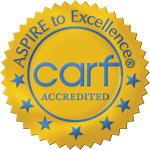Over the last year, efforts to save lives from heroin addiction and drug overdose in Northern KY have met with both successes and new obstacles. While the KY heroin problem continues to do great harm, recovery organizations and advocates are continuing to make inroads in making the region safer and better equipped to deal with addiction. Last year the Northern Kentucky Heroin Impact Response Task Force came together to set goals for tackling the region’s drug epidemic, and in October 2014 they reconvened to review their progress and create an action plan for the next year.
Growing up in an environment of a runaway drug epidemic, teens in southeastern Kentucky counties are faced with unprecedented access to drugs and likely a lot of peer pressure to begin using at an early age. To address this widely acknowledged problem, law enforcement officials and drug prevention volunteers in the state have introduced a new initiative to distribute home drug test kits for parents to administer to their kids in some Kentucky counties.
The home drug test pilot program, nicknamed “Give Me a Reason,” sets out to do just that for Kentucky teens: give them an easily remembered reason to decline to use drugs when they’re faced with that choice. Knowing they can be tested when they get home, the program’s leaders reason, they might be less likely to start using due to peer pressure. The kits allow parents to test for different drugs, from marijuana to highly addictive opiates.
Kentuckians affected by the growing epidemic of heroin abuse and overdose are looking to raise awareness of the problem and urge action from state lawmakers. On May 10 the nonprofit group Walking For Wellness hosted a community cookout in Louisville to raise money for a local treatment center. The fundraiser comes after state legislators struggled to pass a bill that would, among other actions, increase funding for treatment centers across the state.
We’re very pleased to announce that Stepworks will soon be returning to provide residential treatment in Kentucky with the opening of a new Stepworks facility!
Top officials from U.S. health agencies have coauthored a report highlighting the need for greater access to medication-assisted treatment (MAT) for opioid addictions. Prescription opioids account for the most alarming drug overdose rates in the U.S., exceeding those of heroin and cocaine combined.
The authors report that in 2010 there were 16,651 overdose deaths from prescription opioids. Those are scary numbers that flag a need for improved treatment strategies—which the authors believe lie in expanding MAT access. “When prescribed and monitored properly, MATs have proved effective in helping patients recover,” they write.
Despite the confidence health officials may have in MATs, they haven’t yet been embraced across the board. Less than half of private-sector programs have adopted MATs, the authors report.
Why hasn’t MAT been universally integrated into addiction services? The authors list a number of barriers, including a shortage of professional training in MAT, negative stigma about the use of medication to treat addiction, and insurance regulations that place limits on the prescription of MAT drugs. As for the stigma, many programs still hold to an abstinence-only treatment philosophy, and some think that the use of methadone, buprenorphine, and naltrexone just replaces one drug for another.
The authors are hopeful that under the Affordable Care Act, wider access to addiction treatment will begin to produce more patients with good outcomes under MAT, strengthening the case for its adoption by more treatment programs. The agencies sponsoring the report, including NIDA, the CDC, SAMHSA, and the Centers for Medicare and Medicaid Services, are each pursuing strategies to improve the implementation of MAT in addiction treatment services.
Stepworks recognizes that medication-assisted treatment can be a huge factor in recovery success. If you’re struggling with a prescription opioid or heroin addiction, Stepworks’ medical professionals can evaluate whether you would benefit from a treatment program featuring MAT.

